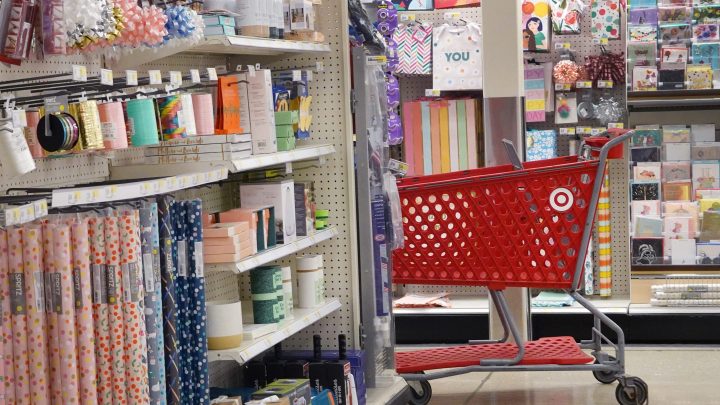
Retail inventories have dropped. But discounts might stick around.
Retail inventories have dropped. But discounts might stick around.

Wednesday morning, Target said its inventories are 17% lower than they were last year. And now that Target’s inventories are leaner, it’s not offering as many discounts. But that doesn’t necessarily mean that the era of retail markdowns is behind us.
Excess inventory can be a drain on retailers — it can bump up storage fees, items can go out style, or go bad. So, offering a discount can help businesses clear the shelves.
“If you can use it to drive traffic into the stores, then that can be a win,” said Sonia Lapinsky, managing director at AlixPartners.
Lapinsky said stores can drive sales by using markdowns selectively.
“There’s got to be the right mix, in terms of what product’s being marked down, how that product’s positioned in the store, even. So that the consumer has something different to buy at full price,” she said.
But steep discounts aren’t exactly great for profits. So now that many retailers have sorted out their inventory issues?
“They’ve gotten to the point where they don’t feel the need to have to mark things down to get inventories back to a more normalized level,” said Brian Yarbrough, consumer research analyst at Edward Jones.
He said retailers still have to worry about getting people in the door. And if a retailer starts offering fewer discounts?
“There’s always that potential that consumers say, ‘Well hey, I was coming in there because you had a bunch of apparel and home items, 20-30-40-50 percent off. But now that you’re back to full price, I’m not paying that,'” Yarbrough said.
Especially since apparel, home items and other discretionary products aren’t all that popular right now.
People are still willing to spend money, said Mickey Chadha at Moody’s.
But they’re spending more of it on travel and entertainment and also necessities like food.
“If I want to buy apparel, I can postpone that purchase, but I need to buy food and other items that I need for my day-to-day,” Chadha said.
As a result, Chadha said discounts aren’t going away entirely. Not because retailers have too many products on hand that they need to get rid of.
Rather, because they need us to keep buying things.
“Promotional activity is part and parcel of retail. It’s never going to go away,” Chadha said, adding that we might even see more discounting if consumers get even choosier about where they spend their money.
There’s a lot happening in the world. Through it all, Marketplace is here for you.
You rely on Marketplace to break down the world’s events and tell you how it affects you in a fact-based, approachable way. We rely on your financial support to keep making that possible.
Your donation today powers the independent journalism that you rely on. For just $5/month, you can help sustain Marketplace so we can keep reporting on the things that matter to you.











